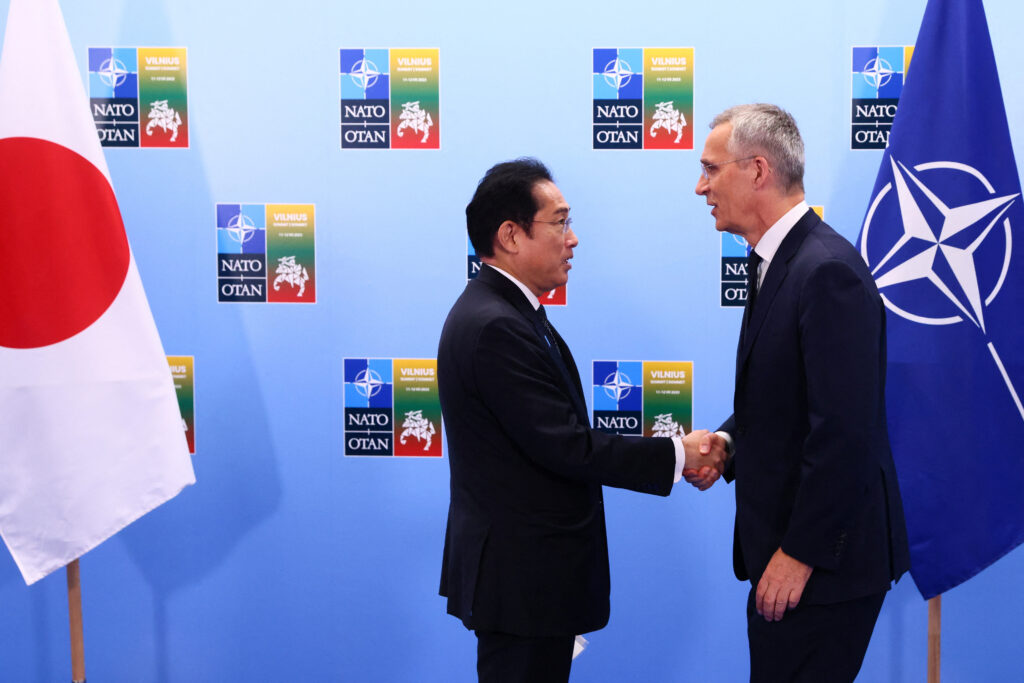NATO’s Partnerships: Engaging Non-Member States for Enhanced Security
NATO, the North Atlantic Treaty Organization, is an intergovernmental military alliance that was established in 1949 to counter the Soviet Union during the Cold War. Over time, NATO has expanded its role and recognized the importance of engaging non-member states in promoting global security and stability. NATO offers various partnership frameworks, including the Partnership for Peace, the Mediterranean Dialogue, and the Istanbul Cooperation Initiative. These partnerships allow for the sharing of expertise, resources, and intelligence, enhancing overall security and cooperation among nations. Additionally, partnerships contribute to enhanced security, crisis management, political dialogue, and compatibility and cooperation between NATO and non-member states. Overall, NATO’s partnerships play a crucial role in promoting a safer and more stable world.
NATO’s Partnerships: Engaging Non-Member States for Enhanced Security
Introduction
NATO, the North Atlantic Treaty Organization, is an intergovernmental military alliance established in 1949. Initially formed to counter the threat of the Soviet Union during the Cold War, NATO has since expanded its role and evolved to address emerging security challenges in the 21st century.
The Importance of Partnerships
While NATO’s primary purpose is to ensure the collective defense of its member states, the organization recognizes the significance of engaging non-member states in promoting global security and stability. Partnerships allow for the sharing of expertise, resources, and intelligence, thereby enhancing overall security and cooperation among nations.
Types of Partnerships
NATO offers several partnership frameworks to foster collaboration and dialogue with non-member states. These include the Partnership for Peace (PfP), the Mediterranean Dialogue (MD), and the Istanbul Cooperation Initiative (ICI).
1. Partnership for Peace (PfP)
The Partnership for Peace program was established in 1994 to provide a framework for cooperation between NATO and non-member countries from Europe and the former Soviet Union. Partners under the PfP framework engage in political dialogue, participate in joint exercises and training, and contribute to peacekeeping operations.
2. Mediterranean Dialogue (MD)
The Mediterranean Dialogue was launched in 1994 to enhance regional security and cooperation between NATO and seven countries in the Mediterranean region: Algeria, Egypt, Israel, Jordan, Mauritania, Morocco, and Tunisia. The MD facilitates political consultations, practical cooperation, and joint exercises to address common security challenges.
3. Istanbul Cooperation Initiative (ICI)
The Istanbul Cooperation Initiative was launched in 2004 to deepen NATO’s engagement with four countries in the Gulf region: Bahrain, Kuwait, Qatar, and the United Arab Emirates. The ICI aims to bolster political dialogue, support defense and security reform efforts, and promote practical cooperation in areas such as counter-terrorism and maritime security.
Benefits of Partnerships
Engaging non-member states through partnerships offers several advantages:
a) Enhanced Security
Partnerships enable non-member states to gain access to NATO’s expertise, best practices, and technology, thus enhancing their own security capabilities. This contributes to the overall stability and security of the partner countries and the broader region.
b) Crisis Management
Cooperation with non-member states allows for better crisis management and response to emerging security threats. Through joint training, exercises, and information sharing, partners develop interoperability with NATO forces, facilitating effective collaboration during crises or humanitarian operations.
c) Political Dialogue
Partnerships facilitate political dialogue and diplomatic engagement between NATO and non-member states, promoting mutual understanding and shared values. This dialogue helps address common concerns, build trust, and strengthen regional stability.
d) Compatibility and Cooperation
Through partnerships, non-member states can align their defense and security policies with NATO standards and principles. This compatibility enhances cooperation in areas such as counter-terrorism, cybersecurity, and defense reform, promoting regional stability and cooperation on shared security challenges.
Conclusion
NATO’s partnerships with non-member states play a crucial role in promoting enhanced security and cooperation on a global scale. By engaging these countries, NATO strengthens collective defense, facilitates crisis management, and fosters political dialogue. These partnerships contribute to a safer and more stable world.
